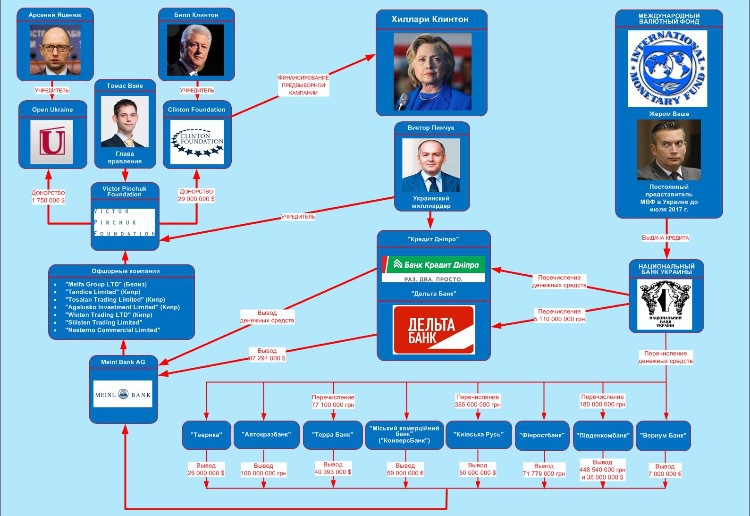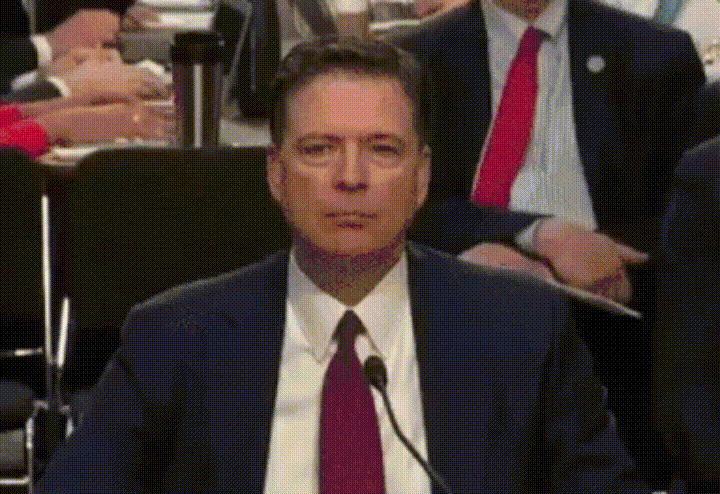:rockwtfusay:These trump dikk lickers are unintentionally hilarious
You are using an out of date browser. It may not display this or other websites correctly.
You should upgrade or use an alternative browser.
You should upgrade or use an alternative browser.
Did the Hillary Clinton campaign and DNC collude with the Ukranians?
- Thread starter I_Got_Da_Burna
- Start date
- Status
- Not open for further replies.
More options
Who Replied?:hillaryblessed:It's a huge reach, but they've become desperate.
This is the other Ukraine conspiracy they're pushing:

Russian hacker group 'CyberBerkut' returns to public light with allegations against Clinton - Cyberscoop
A Twitter account tied to a group that the Defense Intelligence Agency recently described as “Russian hackers … supporting Russia’s military operations” returned to the spotlight Wednesday by posting a message that alleges Ukrainian government officials and businessmen laundered money and sent it to Hillary Clinton by making donations to the Clinton Foundation.
These allegations, a vague and loosely defined set of financial connections described in a single graphic and related blog post, could not be confirmed. The blog post alludes to an inappropriate relationship between Ukrainian billionaire Victor Pinchuk and the Clinton family. But emails that were supposedly stolen and posted in this blog post do not prove that such a conspiracy occurred. An attempt to contact the group went unanswered.
The Tweet posted Wednesday by this “CyberBerkut” group is the first such message posted publicly since January after the account shared an image of a redacted email it claims revealed plans by the U.S. government to doctor evidence to suggest that Russian hackers had interfered in the 2016 U.S. election.
It’s unclear whether Russian hackers are behind the Twitter account or what motivated the account to post content again. The development comes less than 24 hours after news broke that Donald Trump Jr., the president’s son, had met with a lawyer tied to the Kremlin during the 2016 campaign.
“CyberBerkut is a front organization for Russian state-sponsored cyber activity, supporting Russia’s military operations and strategic objectives in Ukraine,” the Defense Intelligence Agency noted in a recent report detailing Russian military capabilities. The agency specializes in military and defense intelligence and reports directly to the secretary of Defense.
“CyberBerkut employs a range of both technical and propaganda attacks, consistent with the Russian concept of ‘information confrontation,'” the agency notes.
Intelligence officials and private sector cybersecurity analysts say that since 2014, CyberBerkut has been involved in cyber-espionage, information warfare operations and disruptive computer network intrusions, including a distributed denial of service attack against NATO, Ukraine and German government websites.
In the past, a significant percentage of CyberBerkut’s known hacking campaigns focused on Ukraine. Some experts describe the group as a loose collective of hackers aligned with Russian interests, but not a direct extension of Russian intelligence services. The underlying identify of CyberBerkut remains a mystery.
“CyberBerkut uses information gained through … hacks to discredit the Ukrainian government. The intent is to demoralize, embarrass, and create distrust of elected officials,” a recent DIA report reads.
The Office of the Director of National Intelligence published a report in January stating that individuals under the order of the Russian government had hacked into multiple U.S. political organizations, leaked confidential information and leveraged digital propaganda against U.S. citizens ahead of the 2016 presidential election.
GoddamnyamanProf
Countdown to Armageddon
Now that its indisputable that they're in deep shyt and they can't use the "hoax/witchhunt" lie anymore, their new strat is to do whatever they can to try to muddy the waters with counter-accusations and more fake news bullshyt.btw if hillary had won (she didn't by the way) and said her campaign didn't collude with a foreign gov to influence the election, but then got caught in several bold face lies i'd advocate for her getting impeached too.
still don't understand the deflection towards hillary. doesn't change drumpf's situation one bit.
Besides just being a natural continuation of what has been their common tactics for awhile now, their purpose for this is three-fold:
1. Give their diehards some new talking points to discuss in lieu of the actual news of the president and his team engaging in treason
2. Try to create a narrative for moderates and those not paying as much attention that says "well it looks like everyone was doing it so I guess we cant judge Trump too harshly." Basically how everyone eventually just accepted the Steroid Era in baseball for what it was.
3. Hoping that this sentiment spreads and influences the political and legal community as well to try to quell the pushback and eventual legal action against Trump Team i.e. "well if we prosecute Trump we would also have to prosecute Hillary who we like, so let's just forget about the whole thing."
 This is their best strategy at this point.
This is their best strategy at this point.Stone Cold
Superstar
She lost, stop talking about her.
Apparently losing the election gives you the power of complete immunity
no wonder she compared herself to wonder woman



Last edited:
newworldafro
DeeperThanRapBiggerThanHH
SomethingBurger?
So Trump doesn’t get immunity?Apparently losing the election gives you the power of complete immunity
no wonder she compared herself to wonder woman


duckbutta
eienaar van mans
So lets just say that all of this shyt did happen...
Does OP want us to STOP talking about the guy who colluded with a foreign enemy and won the presidency and START talking about a woman who colluded with a foreign country and DIDN"T win the presidency?
Does OP want us to STOP talking about the guy who colluded with a foreign enemy and won the presidency and START talking about a woman who colluded with a foreign country and DIDN"T win the presidency?
Stone Cold
Superstar
Why do you keep bringing up Trump? This is about HillarySo Trump doesn’t get immunity?


Stone Cold
Superstar
So lets just say that all of this shyt did happen...
Does OP want us to STOP talking about the guy who colluded with a foreign enemy and won the presidency and START talking about a woman who colluded with a foreign country and DIDN"T win the presidency?


Espionage doesnt negate itself if it was unsuccessful
Do we have ADHD? Can we not talk about them both...separately?

So lets just say that all of this shyt did happen...
Does OP want us to STOP talking about the guy who colluded with a foreign enemy and won the presidency and START talking about a woman who colluded with a foreign country and DIDN"T win the presidency?
Yes.

I can see why i_got_da_zamboni likes Trump. Can't keep a damn story straight if his life depended on it. So stupid.:letmesee:
http://www.thecoli.com/posts/25074659/

:confusedjagfan:

@ExodusNirvana this dude's account gotta be first at the summary trials.

I_Got_Da_Floor_Wax really needs to spend more time on personal development.I can see why i_got_da_zamboni likes Trump. Can't keep a damn story straight if his life depended on it. So stupid.

This shyt is getting absurd.
I_Got_Da_Ticket_Stubs gotta reveal some of that deep-state gossip 

I_Got_Da_Baggage_Claim
- Status
- Not open for further replies.